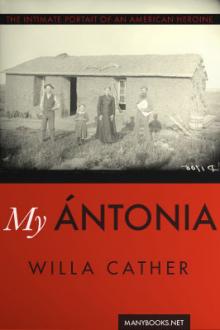Good Indian by B. M. Bower (best beach reads of all time .txt) 📗

- Author: B. M. Bower
Book online «Good Indian by B. M. Bower (best beach reads of all time .txt) 📗». Author B. M. Bower
CONTENTS
GOOD INDIAN
CHAPTER I. PEACEFUL HART RANCH
CHAPTER II. GOOD INDIAN
CHAPTER III. OLD WIVES TALES
CHAPTER IV. THE CHRISTMAS ANGEL
CHAPTER V. "I DON'T CARE MUCH ABOUT GIRLS”
CHAPTER VI. THE CHRISTMAS ANGEL PLAYS GHOST
CHAPTER VII. MISS GEORGIE HOWARD, OPERATOR
CHAPTER VIII. THE AMIABLE ANGLER
CHAPTER IX. PEPPAJEE JIM “HEAP SABES”
CHAPTER X. MIDNIGHT PROWLERS
CHAPTER XI. "YOU CAN'T PLAY WITH ME”
CHAPTER XII. "THEM DAMN SNAKE”
CHAPTER XIII. CLOUD-SIGN VERSUS CUPID
CHAPTER XIV. THE CLAIM-JUMPERS
CHAPTER XV. SQUAW-TALK-FAR-OFF HEAP SMART
CHAPTER XVI. "DON'T GET EXCITED!”
CHAPTER XVII. A LITTLE TARGET-PRACTICE
CHAPTER XVIII. A SHOT FROM THE RIM-ROCK
CHAPTER XIX. EVADNA GOES CALLING
CHAPTER XX. MISS GEORGIE ALSO MAKES A CALL
CHAPTER XXI. SOMEBODY SHOT SAUNDERS
CHAPTER XXII. A BIT OF PAPER
CHAPTER XXIII. THE MALICE OF A SQUAW
CHAPTER XXIV. PEACEFUL RETURNS
CHAPTER XXV. "I'D JUST AS SOON HANG FOR NINE MEN AS FOR ONE”
CHAPTER XXVI. "WHEN THE SUN GOES AWAY”
CHAPTER XXVII. LIFE ADJUSTS ITSELF AGAIN TO SOME THINGS
GOOD INDIAN
CHAPTER I. PEACEFUL HART RANCH
It was somewhere in the seventies when old Peaceful Hart woke to a realization that gold-hunting and lumbago do not take kindly to one another, and the fact that his pipe and dim-eyed meditation appealed to him more keenly than did his prospector's pick and shovel and pan seemed to imply that he was growing old. He was a silent man, by occupation and by nature, so he said nothing about it; but, like the wild things of prairie and wood, instinctively began preparing for the winter of his life. Where he had lately been washing tentatively the sand along Snake River, he built a ranch. His prospector's tools he used in digging ditches to irrigate his new-made meadows, and his mining days he lived over again only in halting recital to his sons when they clamored for details of the old days when Indians were not mere untidy neighbors to be gossiped with and fed, but enemies to be fought, upon occasion.
They felt that fate had cheated them—did those five sons; for they had been born a few years too late for the fun. Not one of them would ever have earned the title of “Peaceful,” as had his father. Nature had played a joke upon old Peaceful Hart; for he, the mildest-mannered man who ever helped to tame the West when it really needed taming, had somehow fathered five riotous young males to whom fight meant fun—and the fiercer, the funnier.
He used to suck at his old, straight-stemmed pipe and regard them with a bewildered curiosity sometimes; but he never tried to put his puzzlement into speech. The nearest he ever came to elucidation, perhaps, was when he turned from them and let his pale-blue eyes dwell speculatively upon the face of his wife, Phoebe. Clearly he considered that she was responsible for their dispositions.
The house stood cuddled against a rocky bluff so high it dwarfed the whole ranch to pygmy size when one gazed down from the rim, and so steep that one wondered how the huge, gray bowlders managed to perch upon its side instead of rolling down and crushing the buildings to dust and fragments. Strangers used to keep a wary eye upon that bluff, as if they never felt quite safe from its menace. Coyotes skulked there, and tarantulas and “bobcats” and snakes. Once an outlaw hid there for days, within sight and hearing of the house, and stole bread from Phoebe's pantry at night—but that is a story in itself.
A great spring gurgled out from under a huge bowlder just behind the house, and over it Peaceful had built a stone milk house, where Phoebe spent long hours in cool retirement on churning day, and where one went to beg good things to eat and to drink. There was fruit cake always hidden away in stone jars, and cheese, and buttermilk, and cream.
Peaceful Hart must have had a streak of poetry somewhere hidden away in his silent soul. He built a pond against the bluff; hollowed it out from the sand he had once washed for traces of gold, and let the big spring fill it full and seek an outlet at the far end, where it slid away under a little stone bridge. He planted the pond with rainbow trout, and on the margin a rampart of Lombardy poplars, which grew and grew until they threatened to reach up and tear ragged holes in the drifting clouds. Their slender shadows lay, like gigantic fingers, far up the bluff when the sun sank low in the afternoon.
Behind them grew a small jungle of trees-catalpa and locust among them—a jungle which surrounded the house, and in summer hid it from sight entirely.
With the spring creek whispering through the grove and away to where it was defiled by trampling hoofs in the corrals and pastures beyond, and with the roses which Phoebe Hart kept abloom until the frosts came, and the bees, and humming—birds which somehow found their way across the parched sagebrush plains and foregathered there, Peaceful Hart's ranch betrayed his secret longing for girls, as if he had unconsciously planned it for the daughters he had been denied.
It was an ideal place for hammocks and romance—a place where dainty maidens might dream their way to womanhood. And Peaceful Hart, when all was done, grew old watching five full-blooded





Comments (0)